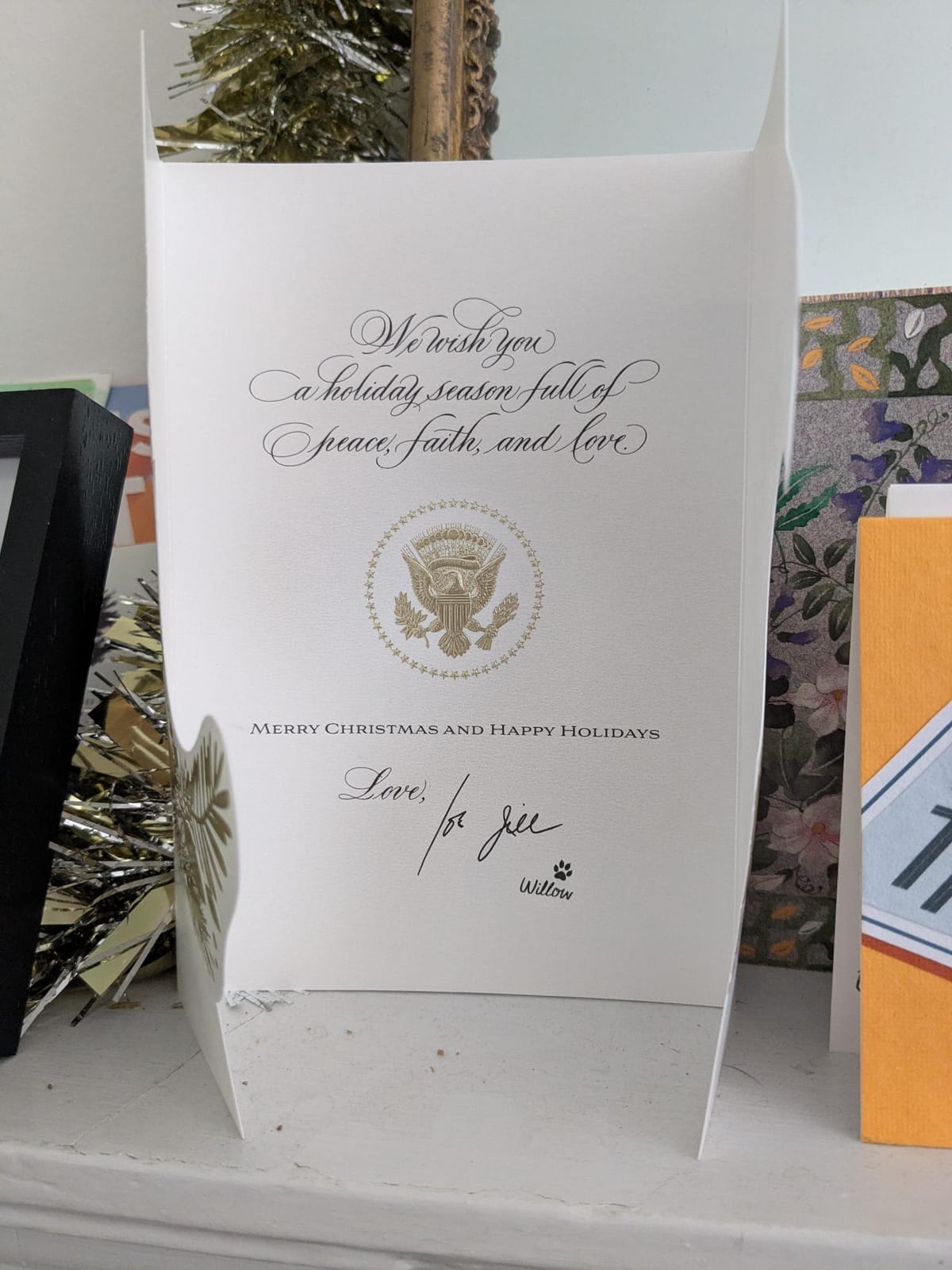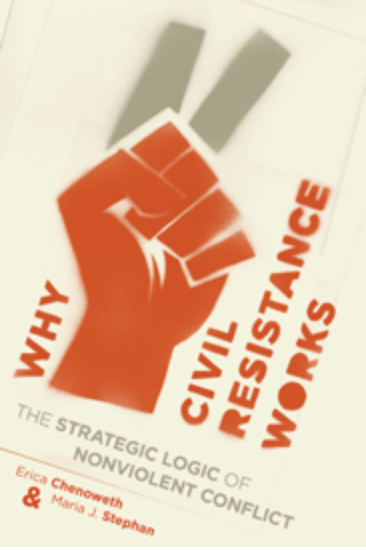What we had once we can have again

Last year – around early December, I assume, because when you're the President you can't send them in January – I received a Christmas card from Joe Biden. It's still on the mantel, and if there weren't a Christmas every year I imagine it would stay there forever.
This says much more about my housekeeping than it does my affection. I expect that there is a part of me that will never forgive him for not pulling out earlier, the same part that will never forgive Hilary for losing, or even Al Gore for conceding Florida – my first eternal political grudge, born at the age of 15. For not defending us, when they were the ones we had chosen for that job.
But I recently received a letter from a reader that made me look at it differently.
This reader is a federal worker who, for that reason, wishes to remain anonymous, but they wrote this letter as they and their colleagues were first being abused by the invading horde, the anti-competence crusaders. It helped me to remember two things. First, to remember the good, as well as the bad. And hot on its heels, that we must remember what was good in order to create it again. Which after all, is what I am trying to do with all of these endless, dizzying projects. This goal, above all, we must remember emotionally as well as intellectually. And this letter helped me to do that. I include it here, unabridged.
Before he left office, President Biden wrote a letter to all federal workers, thanking them for their service and highlighting some achievements of his presidency. I appreciated it at the time, but I filed away the sort of form letter. The Biden years were, to me, what Bernie Sanders and others say politics should be, at least in part—boring. I did not read shocking headlines every day, and I did not have to think about our economy or system of government much at all. Professionals were handling that and, from what I could tell, were handing it well. Nothing got much media attention because normalcy does not. I was content and even grateful to be bored when it came to national politics.
Then came the changes in January. I was terminated from my job as a federal employee, then brought back. I had to read the news to try to figure out what was going to happen to my job. I had people ask how things were going, only to tell me they hoped I lost my job because all government workers are lazy. Such sentiments were now normal, part of the national rhetoric, part of our government. Disdain for us loyal public servants was somehow fashionable even as we continued to work hard to serve our fellow citizens.
By July, many of my coworkers had left rather than lose their jobs in a reduction on force (RIF). Those of us who remain in our jobs now have challenging workloads, damaged morale, and leadership vacuums created by those we lost. At the same time, more shocking changes are now part of our national rhetoric, disdain for many groups is now fashionable in circles at the top, and our system of government seems to be under threat. As someone who took at oath to protect the Constitution, who is bound by ethical rules that require me to have integrity, and who believes in the promise of the core tenets of our system of government, I struggle sometimes.
In July, I found myself reaching for something that would inspire hope and remind me of what is normal for our government, normal for our country. That's when I remembered the letter. I took it out, re-read it. I was struck most of all by the decency of the letter—the decent act of thanking federal workers, the decent achievements of an administration that was in synch with and that upheld, even promoted, American ideals, that protected the core tenets of our system of government. I decided to frame the letter and hang it in my apartment. In its own way, it provides the hope I was looking for and it reminds me of how things used to be, how things should be—and, I must believe, how things will be again.
I hope this can do the same for you.
In other news
My many projects are beginning to bear their first fruits, and I wanted to share one of them as a prelude. It's a humble and particular tool of a specialist, and you might look at it the way I would look at an early implement for dental surgery, but I see it as a sign of life and progress, and think this is reason enough to show it off. If you analyze survey data, my software package flyingmonkey could make your job a little easier.

Last, I was recently rereading the Declaration of Independence, and was struck by how it's list of grievances – which comprise the document almost in its entirety – are eerily similar to the injustices we are being made to suffer as a country now. If you find this analogy compelling, take heart. I might have much more to say about it very soon.




